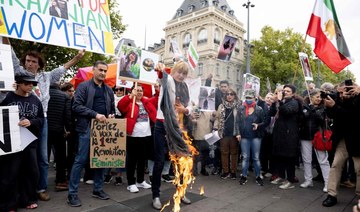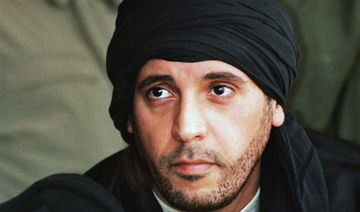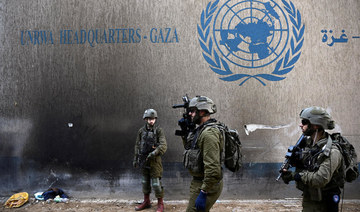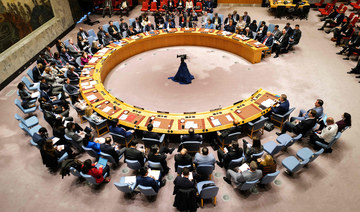LONDON: More than 50 high-profile French actors, models, singers and other celebrities have filmed themselves cutting their hair in support of Iranian women amid protests against the country’s harsh hijab laws.
Actors Juliette Binoche, Marion Cotillard, Isabelle Adjani and Isabelle Huppert have been joined by the Belgian singer Angèle in the hair-cutting videos of solidarity with Iranian women risking their lives to protest against the regime.
Singer Jane Birkin, her daughter Charlotte Gainsbourg and actor Charlotte Rampling contributed their own clips alongside Julie Gayet, the wife of former French President François Hollande.
Cutting their hair “for freedom,” a compilation of the celebrities’ videos was produced with the soundtrack of a Persian version of the Italian folk song Bella Ciao.

Actress Juliette Binoche cuts her hair as a part of a protest following death of Iranian woman Mahsa Amini, in this still image obtained from a social media video. (Reuters)
The young Iranian singer Gandom has produced the cover of the iconic song, which was an anthem of the Italian resistance movement during the Second World War, now used regularly as an international cultural symbol for freedom and resistance to tyranny.
The videos were shared on Instagram with the hashtags #soutienfemmesiran (“Support Iranian Women”) and #HairforFreedom.
The videos reflect footage arising from Iran, where women have been removing their hijabs and cutting their hair in protest since the death of 22-year-old Mahsa Amini, who was murdered by a mob after she violated stricter hijab rules brought in my President Ibrahim Raisi.
The compilation on Instagram was shared with the caption: “It is impossible not to denounce again and again this terrible repression. The dead are already numbered in the dozens, including children. The arrests only add to the number of prisoners already illegally detained and too often tortured. We have therefore decided to respond to the call by cutting off some of our strands of hair.”


























